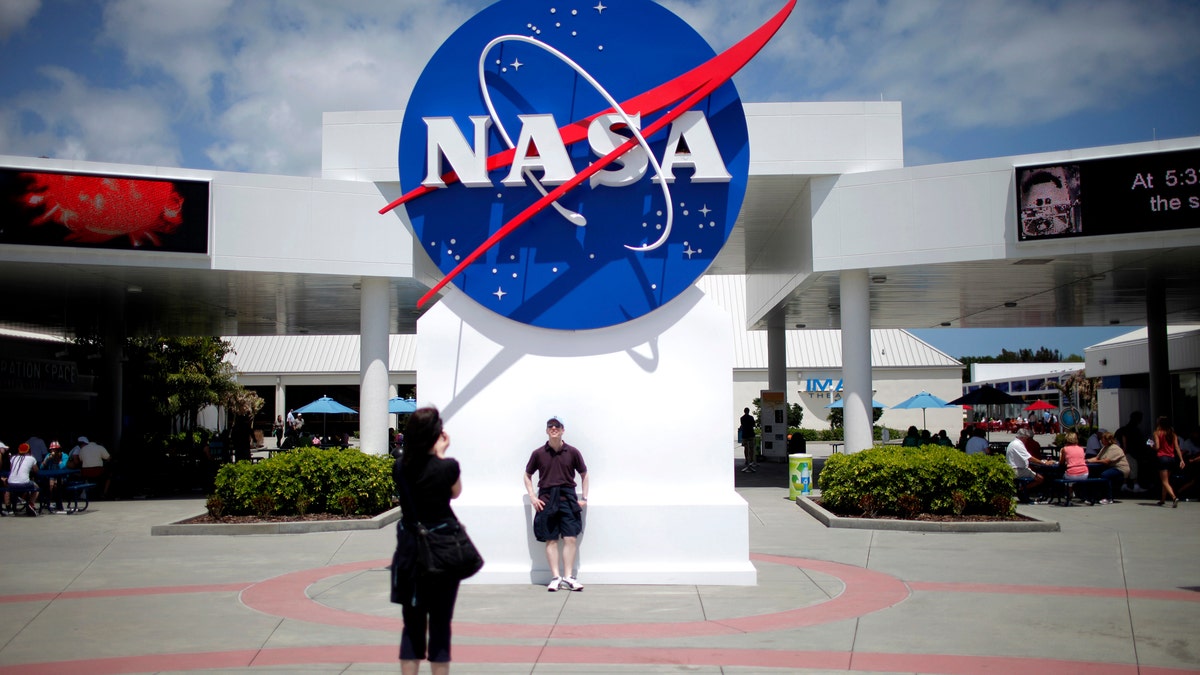
File photo: Tourists take pictures of a NASA sign at the Kennedy Space Center visitors complex in Cape Canaveral, Florida April 14, 2010. (REUTERS/Carlos Barria)
Responding to mounting criticism over inadequate funding and technical planning for sending astronauts to Mars, NASA leaders say they are counting on commercial participation as one means toward a sustainable strategy to explore the solar system over the next two decades.
The reference to long-term reliance on commercial partners for cargo rockets came in response to a report released Thursday by the National Aeronautics and Space Administration’s inspector general, who expressed criticism of agency timelines and cost estimates for eventually putting humans on Mars.
NASA’s statement is the most direct agency indication so far that projected U.S. government funding may need to leverage private-sector investments and commercial expertise in order for crews to fulfill the agency’s target of reaching Mars by the late 2030s and establishing settlements there by the 2040s. NASA said it also expected to persuade some foreign governments to participate in crewed voyages to Mars.
William Gerstenmaier, the head of NASA’s human-exploration office, wrote to the inspector general that efforts to use private cargo rockets as part of the overall drive to send crews to Mars “are continual and will also be reflected in the exploration road map” slated for delivery to Congress at the end of 2017.
This story originally appeared in The Wall Street Journal.




















